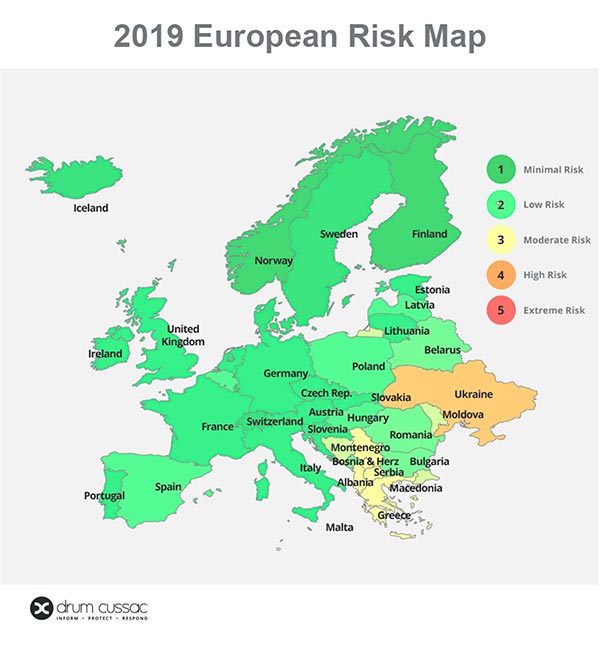-
Our advisors at your disposal


It’s delicate to definitively say which countries are the” safest” in Europe, as safety is a private conception that can be told by a wide range of factors similar as crime rates, natural disasters, and political insecurity. That being said, according to the Global Peace Index, which ranks countries grounded on their position of peacefulness, the top five safest countries in Europe are
The Global Peace Index is a periodic ranking of countries grounded on their position of peacefulness. It’s produced by the Institute for Economics and Peace, a think tank grounded in Sydney, Australia. The indicator ranks countries grounded on a number of pointers, including the position of violent crime, the number of homicides, the actuality of terrorism, and the position of demilitarization.
According to data from the United Nations Office on Drugs and Crime (UNODC), the crime rate in Portugal is fairly low compared to other countries in Europe. In 2018, the country had a rate of 2,208 reported offenses per 100,000 population, which is lower than the normal for the European Union (EU) of 4,003 offenses per 100,000 population.
In terms of specific types of crime, Portugal has a fairly low rate of violent crime compared to the EU average. Still, the country does have an advanced rate of drug offenses and property crimes such as burglaries and thefts compared to the EU average. It’s worth noting that crime rates can vary significantly between different regions within a country, so it’s always a good idea to probe the specific area where you will be travelling or living.

Portugal is at risk for several natural disasters, including earthquakes, wildfires, and storms. The country is located in an active seismic zone, and while earthquakes are relatively rare, they can occur. Portugal also experiences a large number of wildfires during the summer months, which can be caused by a combination of high temperatures, low humidity, and strong winds. The country has a well-developed system for responding to and mitigating the effects of wildfires.
In addition to earthquakes and wildfires, Portugal is also vulnerable to storms, particularly during the winter months. The country is frequently hit by Atlantic storms, which can bring strong winds, heavy rain, and flooding. While these storms can cause damage, Portugal has systems in place to monitor and respond to severe weather events, and the country generally has a good track record of managing the risks associated with natural disasters.
Portugal has a stable political system and is generally considered a safe and peaceful country. The country is a parliamentary democracy with a long tradition of peaceful transitions of power. Portugal is also a member of the European Union (EU) and the North Atlantic Treaty Organization (NATO), which contribute to its stability and security.
That being said, like any country, Portugal is not immune to political issues or social unrest. In recent years, the country has faced challenges such as high unemployment, budget deficits, and the impact of the COVID-19 pandemic. However, these challenges have been managed within the framework of the country’s democratic institutions and have not resulted in widespread political instability. Overall, Portugal is considered a stable and safe country with a well-functioning political system.
Finnaly here are the 10 least safe countries in Europe:
You may also be interested in



